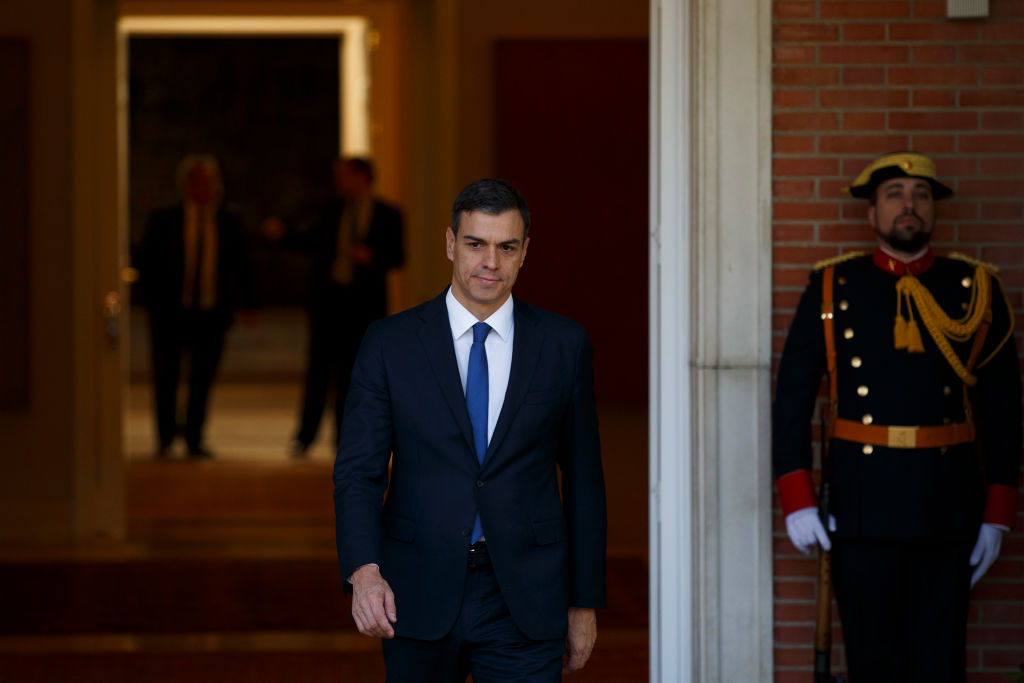Spaniards didn’t ask for their new prime minister, but it seems that they’re starting to like him. The most recent polls reveal that Pedro Sánchez’s Socialists, who now make up Spain’s minority government, are the most popular party in the country. Less than a month ago, the PSOE slumbered in third place, behind the then-ruling Conservative Popular Party (PP) and centrist Ciudadanos. The Socialists have leapt two places up the rankings, even though their seizure of power was seen as illegitimate by many Spaniards. What’s gone so right for Spain’s Socialists?
Sánchez’s surge in popularity can perhaps be partly explained by the diversity of his cabinet; made up of eleven women and six men, it’s the first majority-female government in Spain’s post-Franco democracy and a welcome change for many from Spain’s traditionally male-dominated politics. Sánchez’s colourful line up of professionals, including a lawyer, a journalist and an astronaut, as well as several pro-EU heavyweights, is also something of a breath of fresh air from career politicians.
Sánchez’s focus on increased Spanish unity in a country divided by the chaotic independence drive in Catalonia is also winning Spaniards over. His demand that Catalan secessionists abide by the Spanish constitution, which, he says, protects the “indissoluble unity of the Spanish nation”, has proved popular. But is Sánchez guilty of undermining his own calls for unity? This week he announced that he wants to remove the remains of Francisco Franco, who ruled Spain from the end of the Civil War in 1939 to his death in 1975, from the mass grave in which he’s buried near Madrid. The Valley of the Fallen, as it’s called, was built by political prisoners of the Franco regime between 1941 and 1959 and holds the remains of over 30,000 Republican and Nationalist victims of the Civil War. Justifying his proposal, Sánchez said that “Spain can’t allow symbols that divide Spaniards”.Holding the remains of Spain’s former fascist dictator in a mausoleum topped by a 150-metre high crucifix has certainly caused division in Spain – but so, too, would their removal. Many Spaniards see only empty gesture politics in such proposals, arguing that Franco’s exhumation would not smooth over scars left by the Civil War, or eradicate the collective memory of his dictatorship. A top PP official said that if Sánchez sends diggers into the Valley of the Fallen, it will “do nothing to help coexistence [amongst Spaniards]”.
If Sánchez really does want Spain to come together, he should focus on the Catalan question – and oppose the secessionists. Sánchez’s appointment of Josep Borrell as his foreign minister makes him well placed to do so, and is another reason for the PSOE’s recent increase in popularity.A Catalan himself, Borrell has been one of the most outspoken critics of Catalonia’s latest independence movement. In the last two years, this former president of the European Parliament has written three books attacking the Catalan government’s justifications for independence. Sánchez has also picked an anti-secessionist to be his deputy: Carmen Calvo, a constitutional lawyer, who assisted Rajoy with the legal complexities of imposing direct rule over Catalonia last autumn, following the region’s unilateral declaration of independence.
With these appointments, Sánchez has sent the Catalan secessionists a clear message: they will find the new Spanish government no more sympathetic to their cause than Rajoy’s PP. If he wants to hold on to his new-found, fragile popularity, the PSOE leader must continue to show a strong hand in dealing with the Catalan independence movement. Doing so will further the cause of Spanish unity much more than a divisive exhumation of Spain’s former dictator.






Comments